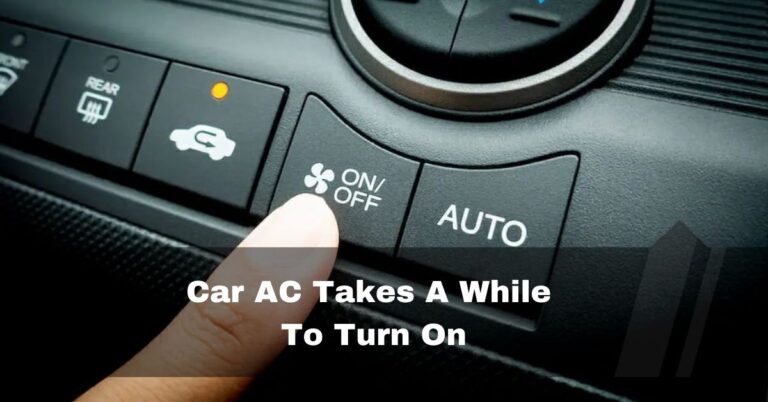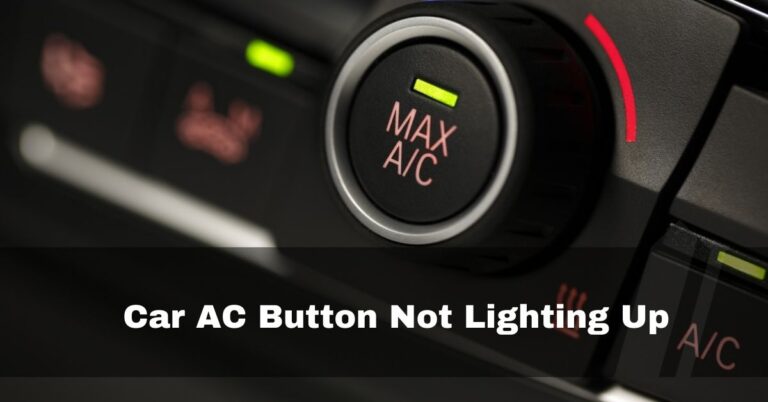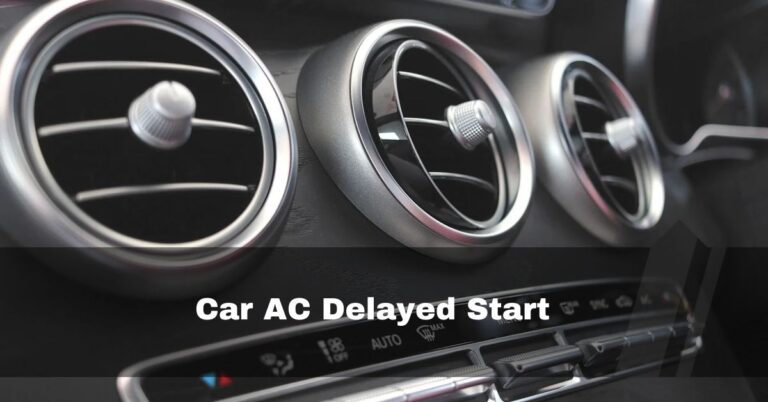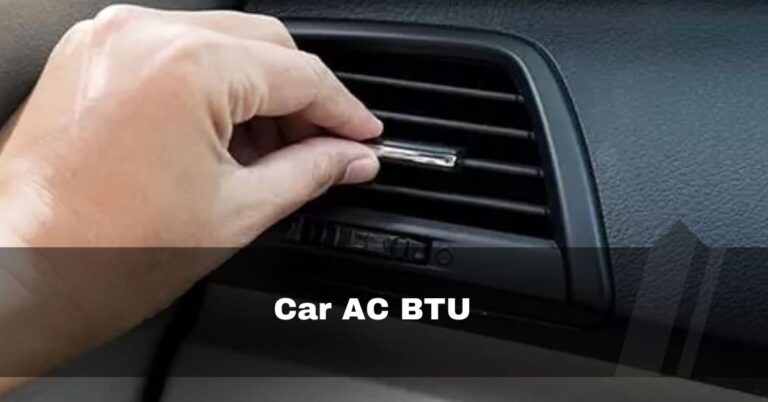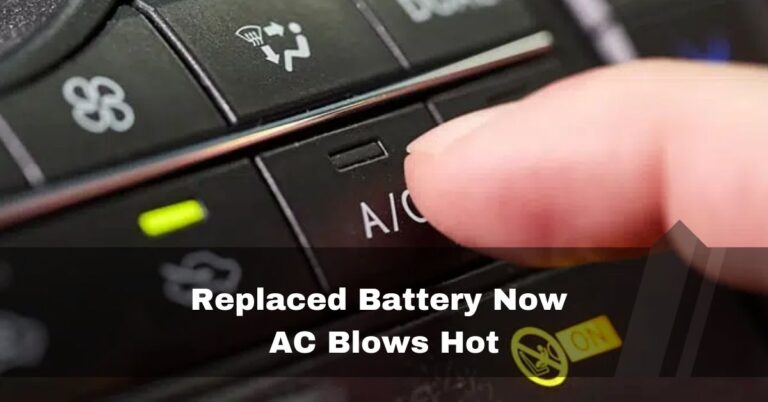AC Compressor Locked Up Car Won’t Start – fix right now
Modern automobiles are engineering wonders, with several parts interacting smoothly to ensure seamless functioning. But when a vital component, like the AC compressor, breaks down and locks up, it can cause a series of issues, including a car that won’t start.
Try starting the car after unplugging the electrical connector at the air conditioner compressor. If it starts, the compressor clutch and/or electrical circuit are most likely at fault.
This article will explore the causes behind an AC compressor locking up and possible solutions to get your car back on the road.
Table of Contents
Understanding The AC Compressor:
One crucial element of a car’s cooling and climate control systems is the air conditioning (AC) compressor. It cools the air before it is blown into the cabin by compressing and cycling a refrigerant gas.
It sounds like your compressor may be seized and constantly engaged. The AC compressor may occasionally develop mechanical faults that cause it to lock up, which could result in several associated concerns, such as trouble starting the automobile.
If an AC compressor is “locked up” and won’t turn, it can prevent the engine from starting. It can be challenging for the engine to turn over when the AC compressor locks up since it adds to the load on the engine at startup. This stress can drain the battery and make the starter motor work harder, ultimately preventing the automobile from starting.
Why Does Car AC Compressor Lock Up And Car Won’t Start? Common Causes:
1. Low Refrigerant Levels:
A certain amount of refrigerant is necessary for the AC compressor to function effectively. The compressor might not get enough lubrication if the refrigerant levels are too low, which could cause it to seize and lock up. A seized A/C compressor can cause the engine not to turn over.

2. Electromagnetic Clutch Failure:
According to the climate control settings, the electromagnetic clutch of the AC compressor engages and disengages in many automobiles. If this clutch malfunctions, the compressor might continue to run, locking up and putting additional stress on the engine during startup.
3. Internal Mechanical Failure:
The internal parts of the AC compressor may deteriorate over time, which could result in mechanical failure. As a result, there may be problems with the compressor locking up and the general operation of the car.

4. Belt Failure:
The engine drives a belt that drives the AC compressor. This belt’s damage or snapping could cause the compressor to lock up and prevent the engine from rotating.
How To Address AC Compressor Lockup When Your Car Won’t Start?
1. Recharge Refrigerant:
Adding the required amount of refrigerant can frequently fix the problem if low refrigerant levels are what’s causing the compressor to lock up. To avoid such issues, fixing any leaks that caused the low refrigerant levels is crucial.

2. Repair Or Replace the clutch:
If the electromagnetic clutch is broken, it could need to be fixed or replaced. When the AC is switched off, the clutch must be disengaged from the compressor.
3. Belt Replacement:
If the belt that drives the AC compressor has broken, a replacement should be installed. It is a reasonably simple fix that can stop further engine strain problems.

4. Compressor Replacement:
A replacement may be required if the AC compressor suffers a significant mechanical failure. The AC system will once again function properly, reducing engine stress. However, this may be a more involved repair.
5. Professional Inspection:
You must speak with a qualified mechanic if your automobile won’t start because the AC compressor is locked up. They can identify the precise cause of the lockup and suggest the best course of action.

How Do You Free A Locked Car AC Compressor?
1. Disconnect The Power:
Ensure the battery is unplugged from the car before working on the AC compressor to avoid any electrical risks.

2. Verify The Lockup:
Check to see if the AC compressor is locked up. When a belt, clutch, or other component malfunctions, a screeching or grinding noise may occasionally be mistaken for a locked compressor.
3. Check The Clutch:
If the electromagnetic clutch on your vehicle’s AC compressor is malfunctioning, it may not be the compressor itself that is the issue. Rust or other debris can occasionally cause the clutch plate to become stuck. To see if the clutch plate moves, gently hit it with a rubber mallet or another soft implement. Take care not to harm the components, though.

4. Rotate The Compressor manually:
It’s possible to manually spin the compressor if it’s mechanically locked because of internal problems. It will help remove any potential internal barriers. Try carefully turning the pulley on the compressor using a tool or socket. It is essential to stop and get professional assistance if it won’t move because attempting to force it could result in further harm.
5. Add Lubricant:
Components may occasionally seize if they are not adequately lubricated. Consider using the refrigerant charging port to introduce a small amount of the proper lubricant into the compressor. Be cautious and ensure you’re lubricating your AC system with the appropriate lubricant.

6. Professional Inspection and Repair:
It is essential to speak with a qualified mechanic or car AC specialist if none of the above remedies prove successful. Excessive pressure or attempts to force the compressor could have adverse effects. A skilled expert can correctly identify the problem and suggest the best course of action for repair or replacement.
FAQs:
1. What Happens If Your AC Compressor Is Seized?
The compressor’s clutch enables the system to switch between using engine power and not, ensuring that the compressor only turns when necessary. The compressor will remain permanently operational if the clutch seizes; if it breaks, the compressor won’t be able to receive engine power.
2. How Do You Tell If A Compressor Is Seized?
In addition to inadequate cooling, a seized compressor is the most typical sign of a compressor failure. When the magnetic clutch engages, it won’t turn, and the drive belt can screech in protest. Alternatively, the belt might already be broken or have fallen off its pulleys.
3. Can An AC Compressor Lock An Engine Up?
Yes, a locked air conditioner compressor can prevent the engine from cranking (turning over), which prevents the engine from starting.
4. Will Too Much Freon Cause The Compressor To Lock Up?
Yes, the temperature of the air conditioning compressor will rise due to an undercharge or overcharge of refrigerant, and the viscosity and lubricating properties of the oil will alter. Lubrication issues are the leading cause of compressor lockups.
5. What Does A Seized Compressor Sound Like?
The compressor may generate a variety of noises if any of those internal parts or the inner bearings malfunction. A seized bearing produces a grinding noise or a loud belt squeak, but a worn path emits a high-pitched squealing or grinding noise.
Conclusion:
A locked-up AC compressor can cause several issues, including trouble starting your car. Whether it’s clutch failure, low refrigerant levels, or other mechanical problems, treating the root cause is essential to putting your car back on the road. To ensure the smooth operation of your car’s components and prevent compressor lockup, routine maintenance and fast treatment of AC system problems are recommended. Always seek the advice of a qualified mechanic if you experience starting problems for an appropriate diagnosis and solution.

